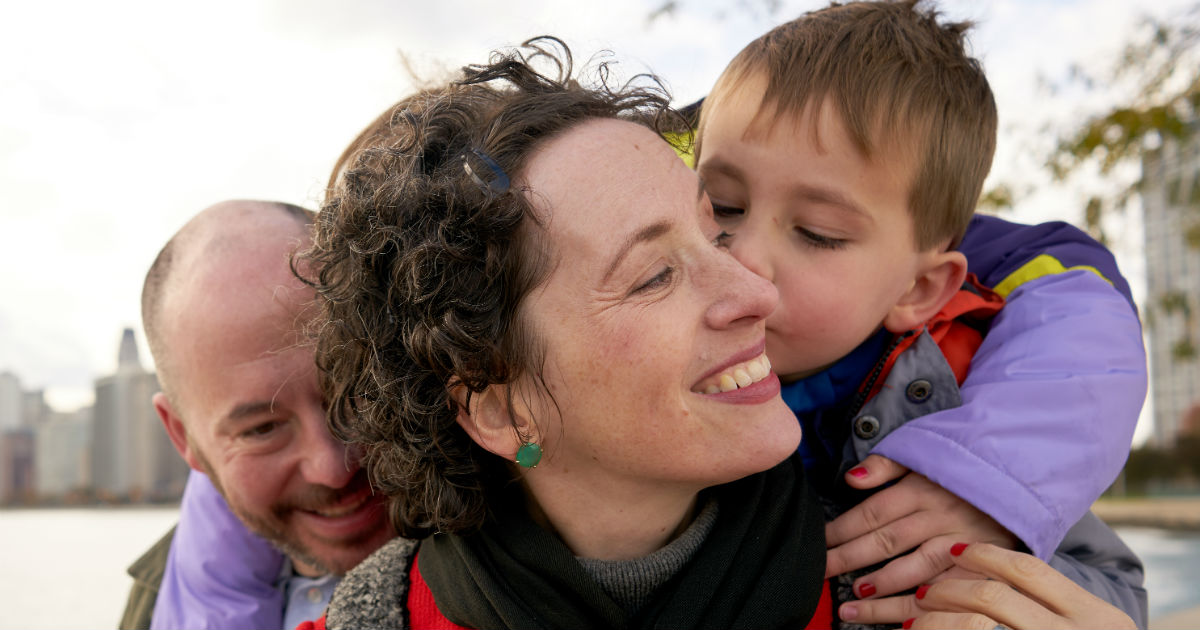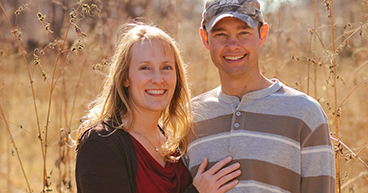
A cancer diagnosis is a life-altering experience for anyone. Parents, in particular, have an additional concern: How to tell their children about their diagnosis. David Wakefield, Marital and Family Therapist at Cancer Treatment Centers of America® (CTCA) in Tulsa, offers his advice to parents and children dealing with a parent's cancer diagnosis.
Question: What strategies do you suggest for parents preparing to talk to their children?
A: Parents should discuss in advance what they are going to talk about and how they are going to say it. They might even role play the discussion beforehand. Parents should think about questions the children will ask and prepare how to respond. It’s often impossible to anticipate every question so decide beforehand how you will handle the curve ball question. It’s is okay to say, “That is a good question but I don’t know. Let me get some more information and I will get back with you.” Make sure your facial expressions and body language are congruent with the verbal content. Children are good at picking up mixed messages.
Q: What should parents say to their children when they share their diagnosis? How does a child’s age factor into what parents convey?
A: All information needs to be shared on an age-appropriate level. Make sure your message is easy to understand. Give children accurate information that they will understand. Use the word cancer. Show them where the cancer is located in your body. Make sure they know it is not contagious. If you don’t explain to them what is happening, young children in particular may invent their own understanding of what is happening. Let young children know that they did not do or say anything to cause the cancer. Children tend to blame themselves when they can’t understand events in life.
Ask your children if they have any questions about what you just said. You can also ask, “What does that mean to you?” That way you can see if what your shared and what they heard are similar. If not, spend some time to clarify. Be honest at all times and keep your answers simple.
Q: What kinds of reactions can parents expect from their children and how can parents respond?
A: Responses may vary based on age, feelings of perceived threat of losing the parent, closeness to the parent who has the diagnosis, and processing skills and speed of processing information. The responses also can be based on the child’s personality. Some children will become clingy and manifest signs of separation anxiety. Other children may pull away fearing the worst and not knowing how to handle it or what to say. Some kids will keep on being kids like nothing ever happened.
Q: What can children do to be supportive of their parent during their parent’s treatment? What can parents do for their children during this time?
A: Children should continue with their daily routine. They need to continue their friendships and extracurricular activities. Children can take on a few more chores around the house to help out. This is not a time to turn a child into a little adult, though.
Parents need to continue to be good parents and discipline their children. Parents should accept changes in their children’s behavior or mood, which is normal when children are processing difficult information. Parents should continue hugging their children, spending time with them and telling them that they love them.
Q: How can families look toward the future with hope?
A: After a diagnosis of cancer the old normal is gone. Adults and children need to think about developing a new normal. Trying to get back to the way things were will not only be a waste of time but will be frustrating. Families can create new dreams for the future based on the new normal and plan for the following scenarios:
- What are our new priorities and new plans now that we have a diagnosis of cancer?
- How can we turn this battle against cancer into a team event where every family member participates in the solutions because everyone is affected?
- What can we do to celebrate stages of treatment being completed, such as completing chemotherapy treatment or radiation treatment or being discharged from the hospital after surgery?
- How will we spend the summer months when the kids are out of school?
- Are there special places we would like to go or people we would like to visit?
- How can we enjoy today and make the most of it?
Hope is about facing reality and doing the best we can to arrive at solutions. If a hoped-for outcome becomes impossible, the hopeful person will find something else to hope for. In doing so, you maximize your strengths and accomplishments and minimize your weaknesses and setbacks.
Learn more about spiritual support for cancer patients and their families.


